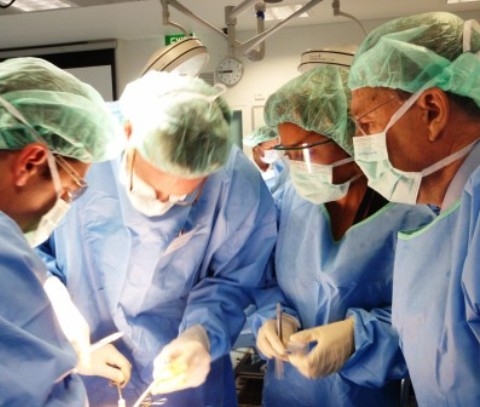Surgeons Working Together to Improve Surgical Quality

Ever notice how many people promise you access to quality healthcare? Ever wonder which of them knows what quality is?
Let's focus on surgery for a moment. Let's also leave aside for now some complicating features of the quality discussion. Let us agree, for example, that quality relates not to availability of parking at the surgeon's office but to clinical results. Let us agree that surgery quality is measured by such things as blood loss, infection, and survival time. Who do you suppose understands those surgical measures best and how to bring about improvement?
This is not a rhetorical question. The question arises forcefully these days with the arrival at the virtual bedside of parties ranging from journalists to serial entrepreneurs who have newly discovered health services research, a mature field that requires not only subject expertise and practical knowledge, but also mastery of certain analytical techniques and submission to third-party, arms-length peer review. In recent examples, some of these new arrivals have used invalid methods, not even understanding that they are invalid; you can read an overview of the problem if you click here. Some of these parties have published -- and gotten substantial media attention -- and/or aim to publish surgeon specific quality scorecards that, when based upon invalid methods, have potential to cause enormous harm to patients and to surgeons.
What we do know is that surgeons are really good at detecting surgical quality. This fundamental observation opens the door to getting at scientifically valid, subject expert, and clinically meaningful surgeon qualification. It is also the basis of work ongoing in surgery to not only classify surgeon quality but help them to become better. This kind of surgical coaching has been shown to deliver better qualified surgeons than conventional training. Peer support and ongoing surgical coaching is also the bedrock of statewide collaborative efforts in surgical improvement. You can click on the video below to see a summary of how the Michigan Bariatric Surgical Collaborative puts surgical coaching to work in raising the quality of bariatric surgeons.
Everyone has a stake in access to quality care. When it comes to quality surgical care, not everyone knows how to find it. This is why it's reassuring to know that, far from the noise and hype of serial entrepreneurs and journalists looking for headlines, surgeons actually know what they're doing. And among the things they are doing is working together to improve the quality of surgical care.












